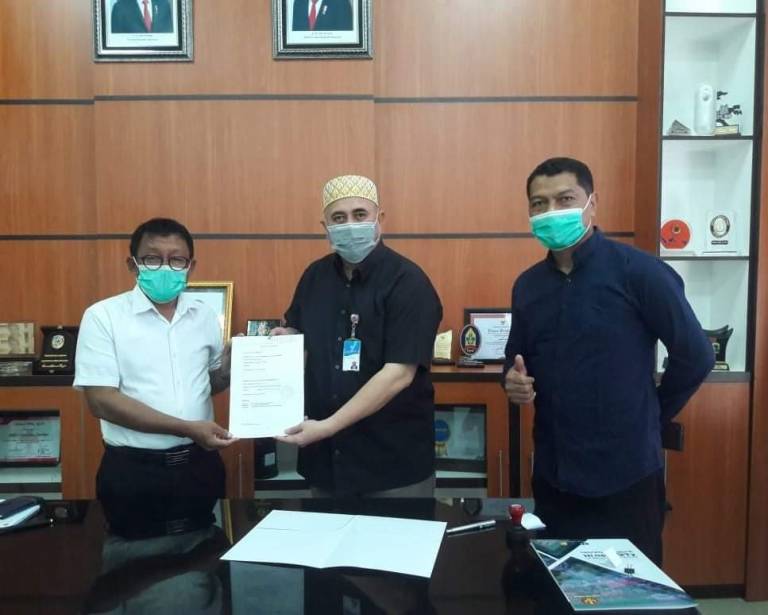UCL-led recovery project in Indonesia receives funding boost by UKRI
27 November 2020
A team of UCL academics have teamed up with Tsunami and Disaster Mitigation Research Center and Tadulako University under the UKRI Global Challenges project to foster the resilient recovery of communities in Palu, Indonesia, displaced by the 2018 earthquake and tsunami.

The project will be led by UCL EPICentre (Earthquake and People Interaction Centre) which was set up by Professor Helene Joffe from UCL’s Division of Psychology and Language Sciences, and Professor Tiziana Rossetto, UCL Faculty of Engineering Science.
The UCL EPICentre is one out of 141 new international development research projects awarded funding by the UKRI GCRF Collective Programme – an investment of £147 million across 18 funding opportunities – that will support this project.
Professor Helene Joffe (PALS), Principal Investigator, said: “UCL EPICentre brings together know-how from psychology and engineering to better understand and help people in natural disaster prone areas to prepare. This particular project will address major intellectual challenges by bringing together psychology, environmental and structural engineering. By so doing, and through strong community engagement, the project will advance knowledge on psycho-social and physical recovery, and on multi-hazard risk assessment.”
The intervention takes place over three sites in the poorest, most devastated parts of Palu, and will address the psycho-social, hygiene-related and infrastructural needs and aspirations of survivors. The interventions will foster recovery, while simultaneously empowering these communities to make decisions around their future disaster resilience.
The project aims to build the research capacity of two Indonesian Universities, and the collected evidence will enable them to further their mission of influencing the Indonesian Ministry of Education to implement an effective disaster recovery and preparedness program in all Indonesian schools. The interdisciplinary evidence base that emerges from the proposed project will ensure that this programme, and others in different regions of the world that target similar contexts, are based on sound scientific evidence and knowledge of local contexts gleaned from survivors themselves.
The research involves close collaboration with the Humanitarian sector, and so the proposed research will not only produce traditional academic output but also practice-based reports and guidelines, which will be developed to improve the efficiency of future disaster response and resilient recovery programs.
The project is highly relevant to Indonesia (and other ODA countries) in tackling the grand challenges of sustainability and resilience, undertaking adventurous interdisciplinary research and promoting dynamic and informed decision-making processes by the agencies in charge of Disaster Risk Reduction (DRR) and recovery. The ultimate stakeholders in the project are the children from marginalised and displaced communities in Palu, their teachers and families. The goal is to enhance the communities’ resilience to future disasters by creating school-based hubs that address the psycho-social, hygiene and safe buildings needs of the stakeholders. By involving multiple stakeholders at international, national and local levels, output from the project will strengthen the adaptive capacity of local institutions, civil protection and communities to identify, assess and respond to present and potential shocks and stresses, with special focus on school facilities.
The project will also provide several Indonesian and UK industries, such as local engineering consultancies and construction companies, with a practice-oriented framework (and related implementation tools) for assessing and increasing multi-hazard resilience of school facilities and for building back better. UCL EPICentre's wide network of industrial collaborators will be used for the promotion of the project outputs to the insurance and reinsurance industry (e.g., Willis Re., Insurance Development Forum), NGOs (e.g., Save the Children, Build Change, the Red Cross), and multidisciplinary consultancy firms (e.g., ARUP, Buro Happold). The ultimate goal is to create a vibrant core of activities in which research is driven by genuine user priorities, and industry, in turn, benefits from access to state-of-the-art techniques and innovation assembled by world-leading experts.
Links
- Professor Helene Joffe
- UCL Division of Psychology and Language Sciences
- EPICentre
- The Public Engagement with Social Issues Group
- EPICentre Courses
- EPICentre 360 Library
- MSc Earthquake Engineering with Disaster Management
- EFID UCL
- UCL Civil, Environmental and Geomatic Engineering
 Close
Close

